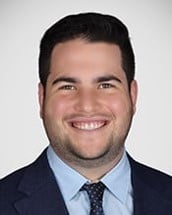In brief
On 14 November 2023, the IRS issued the long-awaited proposed implementing regulations (REG-142338-07) under section 4966, added by the Pension Protection Act of 2006 (“Proposed Regulations“). The Proposed Regulations address many definitions related to donor advised funds, donors and donor advisors. The proposed regulations are intended to help taxpayers understand how the imposition of excise taxes on taxable distributions may apply to them.
The IRS and Treasury invited taxpayers to provided comments to the Proposed Regulations and received them from more than 150 organization. A public in-person hearing on 6 May was held to discuss comments on the Proposed Regulations and then due to interest added a second telephone-only public hearing on 7 May. The in-person hearing featured more than 30 speakers.
Proposed regulations
After 16 years with little to no formal guidance, the IRS has issued the Proposed Regulations to address the many open questions related to donor advised funds (DAFs). Focusing mostly on defining terms used in the statute, taxpayers now have some clarity on how to avoid actions that might impose the excise tax. Having been placed on the US Department of the Treasury’s Office of Tax Policy and the Internal Revenue Service’s joint Priority Guidance Plan shortly after the amendment of section 4966, it is unclear why this guidance took so long. The Proposed Regulations provide much needed guidance which will help clarify many outstanding questions, unfortunately, they do not appear to address prohibited benefits or how the excess benefit transaction rules apply to DAFs.
Specifically, the Proposed Regulations address the definition of Contribution, Disqualified supporting organization, Distributee, Distribution, Fund Manager, Related persons, Donor, Donor-Advisor, Distribution, Donor Advised Fund (and the exceptions thereto), and Taxable Distributions. We address several herein.
A donor-adviser is a person appointed or designated by a donor to have advisory privileges, including a delegee. A person who establishes the fund or account and provides advice regarding distributions will be treated as a donor adviser, regardless of whether the person contributes to the fund or account. This also includes investment advisers who provide advice regarding both the assets maintained in the fund and the personal assets of a donor to that fund, regardless of whether the donor appointed or recommended them. Therefore, a payment of compensation to this personal investment advisor from a DAF is an automatic excess benefit transaction subject to the excise tax under section 4958. There is an exception where the personal advisers are providing services to the sponsoring organization as a whole, rather than solely to the DAF.
A distribution is defined as any grant, payment, disbursement or transfer, whether in cash or in kind, from a DAF. However, investments and reasonable investment- or grant-related fees are not considered distributions. This expands the definition of distributions to include disbursements or payments and not just gratuitous transfers. In other words, payments made for services, even those appropriate to carrying out charitable purposes, may be caught resulting in an obligation to exercise expenditure responsibility to prevent a distribution being subject to excise tax. However, it has been reported that IRS officials have publicly stated that they expect reasonable costs of administering and maintaining DAFs to be excluded from the definition of distribution in the final regulations.
The Proposed Regulations recite the statutory definition of a DAF and provide additional guidance regarding whether a fund or account is “separately identified by reference to the contributions of a donor or donors” and whether there is at least one donor adviser with “advisory privileges.” To be separately identified, the sponsoring organization must maintain a formal record of contributions to the fund relating to a donor or donors. If these records are not present, a facts-and-circumstances test applies. A number of facts tend to show that a fund is separately identified, including:
- Fund or account balance reflects items such as contributions, dividends, interest, distributions, administrative expenses, and gains and losses (realized or unrealized);
- Fund or account is named after one or more donors, donor-advisors, or related persons;
- Sponsoring organization refers to the fund or account as a DAF;
- Sponsoring organization has an agreement or understanding with one or more donors or donor-advisors that such fund or account is a DAF;
- One or more donors or donor-advisors regularly receive a fund or account statement from the sponsoring organization; and
- Sponsoring organization generally solicits advice from the donor(s) or donor-advisor(s) before making distributions from the fund or account.
As for advisory privileges, the Proposed Regulations establish a separate facts-and-circumstances test and clarify that, with certain limited exceptions, advisory privileges are deemed to exist by reason of a donor’s status as a donor. Any one of the following four facts is sufficient to establish that a donor or donor-advisor has advisory privileges by reason of the donor’s status as a donor, regardless of whether they are exercised:
- Sponsoring organization allows donor or donor-advisor to provide nonbinding recommendations regarding distributions from, or regarding the investment of assets held in, a fund or account;
- Written agreement states that donor or donor-advisor has advisory privileges;
- Written document or any marketing material of the sponsoring organization made available to a donor or donor-advisor indicates that donor or donor-advisor may provide advice to the sponsoring organization regarding the distribution or investment of amounts held by sponsoring organization; or
- Sponsoring organization generally solicits advice from donor or donor-advisor regarding the distribution or investment of amounts held in a fund or account.
The Proposed Regulations also include specific rules for determining whether individuals appointed by the donor to an advisory committee have advisory privileges.
Moving forward
The Proposed Regulations are applicable to taxable years ending after the date of publication of the final regulations in the Federal Register. This could result in the regulations having retroactive application. However, it has been reported that IRS officials have publicly stated that they do not expect that the final regulations would ultimately apply retroactively. In the meantime, taxpayers may rely on the Proposed Regulations for taxable years ending before the date the final regulations are published.





